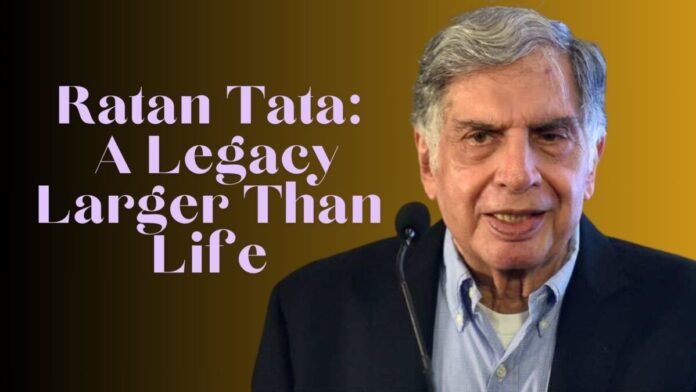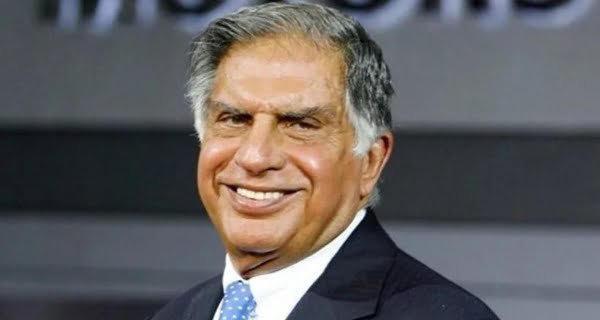
Mumbai: In a whirlwind of rumors and speculations, Indian industrialist and honorary chairman of Tata Sons, Ratan Naval Tata, recently made headlines with reports suggesting his demise. The 86-year-old titan, who was admitted to Mumbai’s Breach Candy Hospital on Monday due to age-related ailments, faced deteriorating health by Wednesday, igniting concerns across India’s corporate, political, and public spheres.
However, on Friday, Ratan Tata himself dispelled the growing fears with a statement that not only clarified his health but also showcased his enduring resilience. “I am undergoing regular medical checkups for age-related issues but am in good spirits,” he assured. The Tata Group followed with their own statement, acknowledging the rumors and reaffirming their admiration for the corporate giant who shaped not just their organization, but the nation as well.
An Ethical Leader and Philanthropist: Corporate India Pays Tribute
Industrialist Harsh Goenka, a longtime admirer of Tata, took to social media platform X, previously known as Twitter, to honor Tata’s profound contributions, stating, “Ratan Tata was an example of honesty, ethical leadership, and philanthropy. His legacy will forever echo in the business world and beyond.” Goenka’s post further fueled public reflection on Tata’s life and work, cementing his place as a symbol of corporate integrity.
Gentle Yet Bold: The Compassionate Side of Tata
Though known for his business acumen, Ratan Tata’s philanthropic work often took center stage. In the throes of the COVID-19 pandemic, when India battled a severe health crisis, Tata’s selfless act of donating ₹500 crore provided much-needed relief. His compassion extended beyond humans as well—Tata was a known dog lover, and his recent efforts to open a five-storey, ₹165 crore dog hospital in Navi Mumbai, where 200 pets can receive simultaneous care, highlighted his dedication to animal welfare. “I consider dogs as part of my family,” he said at the hospital’s inauguration, underscoring the personal significance of the project.
From Tata Indica to Nano: Revolutionizing India’s Automotive Industry
Ratan Tata’s transformative journey in the automotive world left a lasting impact. Under his leadership, Tata Motors broke new ground in 1998 with the launch of the Tata Indica—the first fully indigenous car designed and produced in India. Its success was unprecedented, and it quickly set new sales records. A decade later, Tata stunned the world again with the Tata Nano, the world’s most affordable car, priced at under ₹1 lakh. Despite initial setbacks, including a near-sale to Ford Motors in 1999 after Bill Ford’s infamous jibe “When you don’t know how to make cars, why did you try?” Tata’s resolve never wavered.
Turning the Tables on Ford: A Decade of Redemption
The tables turned spectacularly in 2008 when the struggling Ford Motors was forced to sell its iconic Jaguar and Land Rover brands. In a poetic twist of fate, it was Tata Motors, led by Ratan Tata, that acquired Ford’s assets, marking a historic business coup. This moment became one of the most significant in global automotive history, showcasing Tata’s visionary leadership and tenacity.

Beyond Automobiles: TCS and the Tech Revolution
While his automotive feats are well-known, Ratan Tata’s contributions to technology, particularly through Tata Consultancy Services (TCS), remain equally monumental. As one of the world’s largest IT and business process outsourcing companies, TCS not only revolutionized the tech sector but also generated employment on an extraordinary scale, further embedding Tata’s legacy in India’s economic fabric.
Ratan Tata: A Legacy Larger Than Life
As Ratan Tata continues to recover, the corporate world is left in awe of a man whose contributions have far surpassed expectations. His achievements, both in business and philanthropy, remain a testament to his enduring influence. With his gentle spirit and unyielding determination, Ratan Tata’s legacy will forever shape India’s future, both in industry and in humanity.





















































